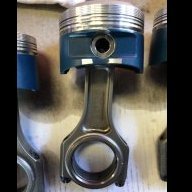Announcements
-
Similar Content
-
Latest Posts
-
Yes indeed ; They offered it to me, I'm waiting for their quote 😉
-
Hey, thanks dude. Freedom to do whatever one wants to with their own car and build, but personally I don't want anything that's too precious. If I can't beat on it when I feel inspired, what's the point of having a car like this? And if I break something, it's me who's going to be fixing it myself...
-
Admin delete if not allowed please, I just purchased an r32 GTST with a Gtr front bar , grill I assume bonnet? (maybe) I have 2 questions he told me it had an RB25det I’m new to the RB world, and this is the photo I have taken and also I noticed a piece near my suspension broken is this fixable , will update new photos tomorrow once I have lifted her up and removed the LHS wheel I want to know if there is ways around this , I didn’t notice anything as it drove with no knocks on the suspension or weird feeling the car feels sluggish, and the rpm cluster literally goes to 3.5-4k rpm and when you put your foot down it dances around like the local girl on Canterbury road or Sefton playhouse the car sat for 8 years he said the oil was dropped and re done , I noticed the oil was very clean car starts no problems by all means it’s not a clean car it is a project but doesn’t need much, knowing me I will go overboard the colour is horrible car has 88k kms hardly driven needs a few things but it’ll be fun to build properly so guys is this an rb20 or rb25 and what is this bracket called? Can it be fixed thanks
-
found this on the forum , suggests I am in the range ----------------------------- From the segmented (potentially incorrect) information I've found that; Early R32: RB26000XXXX to RB26002XXXX Mid R32: RB26003XXXX (V-Spec I RB26-03XXXXX - Reference Classic Register) Late R32: RB26004XXXX (V-Spec II RB26-042XXXX - RB26-045XXXX - Reference Classic Register) Early R33: RB26005XXXX Mid R33: RB26006XXXX (as per the engine in this R32 V-Spec II, which is what I'm concerned about from legitimacy perspective) Late R33: RB26007XXXX Early R34 (2000+): RB26008XXXX ----------------------
-





Recommended Posts
Create an account or sign in to comment
You need to be a member in order to leave a comment
Create an account
Sign up for a new account in our community. It's easy!
Register a new accountSign in
Already have an account? Sign in here.
Sign In Now